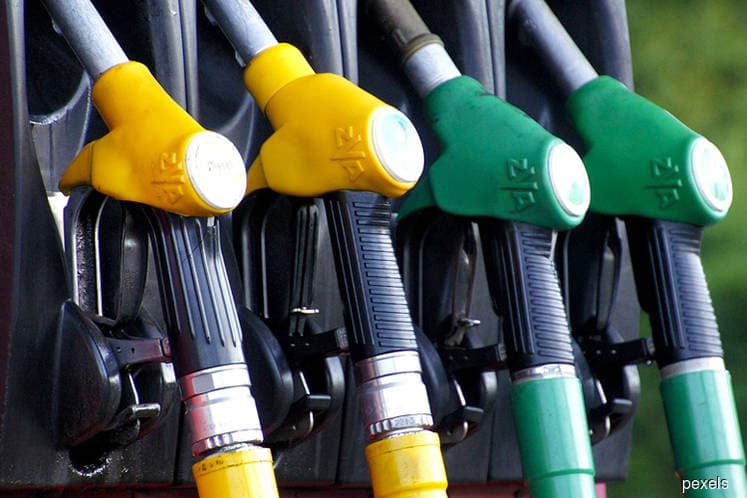
This article first appeared in The Edge Financial Daily on October 9, 2019
KUALA LUMPUR: Economists are anticipating a slight — albeit manageable — uptick in inflation next year when the Targeted Fuel Subsidy Scheme is implemented on Jan 1 in Peninsular Malaysia and the RON95 petrol price floated in tandem with market prices.
At the current oil price level, economists said, RON95 ought to be retailed at around RM2.30 per litre — rather than RM2.08 at present.
In January and February, RON95 averaged around RM1.98 per litre. At the end of February, the fuel price was capped at RM2.08 a litre.
Should oil prices remain elevated at the start of 2020, a lower-base effect from the corresponding period last year may contribute to slightly higher inflation, said Affin Hwang Investment Bank Bhd chief economist Alan Tan.
Affin Hwang has maintained its inflation forecast for 2020 at 1.8% versus the consensus of 2%, according to Bloomberg.
Tan said the estimate is still relatively low and manageable, compared with the long-term historical trend. Between 2013 and 2017, for instance, annual inflation was consistently above 2%, averaging 2.6%.
CGS-CIMB Research economists Michelle Chia and Lim Yee Ping said in a note yesterday that underlying price movements are poised to remain below the levels consistent with medium-term price stability, even though a slight upward pressure on core inflation is expected due to second-order effects.
They have revised their 2020 Consumer Price Index (CPI) forecast to 1.9% from 1.1%.
Sunway University Business School economics professor Dr Yeah Kim Leng also believes there will be little disruption, noting that transport expenses account for 14.6% of the CPI basket. “Given the current and projected low-inflation environment next year, the slight uptick is not expected to disrupt the low-inflation trend unless the world oil price skyrockets,” he said.
‘More subsidy savings for the government’
Given the smaller subsidy outlay when compared with the current petrol subsidy, Yeah is of the view that the government should be able to either reduce its fiscal deficit more quickly or increase allocations for other more important development activities.
“A back-of-the-envelope calculation shows that the RM30 a month subsidy amounts to between 5% and 15% of monthly transport expenses of low-income households,” he observed, describing it as “a reasonable amount” given other financial assistance to the bottom 40% income households and the government’s current financial constraints.
It is understood that based on an average oil price of US$65 (RM272.35) per barrel, Putrajaya could save some RM2 billion annually.
At the same time, it has pegged the total cost of targeted fuel subsidies at RM65.4 million a month or RM784 million a year based on 2.9 million beneficiaries.
On concerns whether businesses would take this opportunity to raise prices, Yeah noted that the cost-push inflation pressure will likely be transitory if demand is not strong and businesses would be wary of losing business or their market share, especially in industries that are not facing supply or capacity constraints. “Nonetheless, the fuel price adjustment, when floated, should not be too sharp as to provide an excuse for businesses to [raise prices].”
Affin’s Tan concurred, pointing to cost-push inflation which remains manageable as reflected in the low levels of the Producer Price Index.
Separately, at the Parliament lobby yesterday, Domestic Trade and Consumer Affairs Minister Datuk Seri Saifudin Nasution Ismail said the government will look into an opt-in and opt-out option for the fuel subsidy scheme.
“If there are others that should be included, then we are okay with that. We will do an opt-in and opt-out option,” he said.